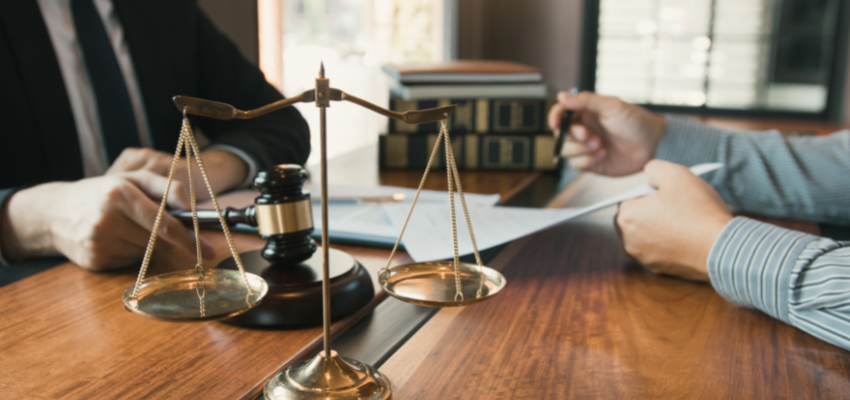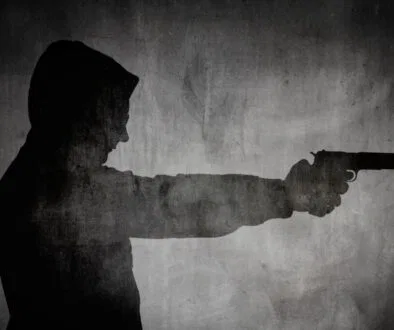How To Prove Innocence When Falsely Accused

Published January 09, 2023
Though it may not be common, it’s not far from reality for one to be accused of a crime they didn’t commit. And when it happens, it can be heartbreaking to the accused and their family and friends.
On the bright side, the accused will always be innocent until proven guilty.
The problem occurs once the accuser presents evidence of the accused’s crime. At that point, you will have to bring forth evidence to prove innocence, but where exactly can you get such proof?
Read on to learn how to prove innocence when falsely accused using five types of evidence. But first, let’s expound on the previously mentioned idea that the accused is innocent until proven guilty.
Innocent Until Proven Guilty
Innocent until proven guilty, also known as the presumption of innocence, is a legal principle that essentially means the defendant cannot be charged with the crime unless there is damning evidence.
This is relevant in false accusations because it means you don’t necessarily have to prove innocence.
Of course, while actively seeking ways to prove your innocence is indeed advisable, there’s a chance you can avoid a conviction without doing so. You need only to prevent the prosecutor’s office and the accuser from proving you’re guilty of the crime. But isn’t that the same thing as proving innocence? you may ask.
Interestingly, no, it’s not the same thing.
Let’s say you were accused of burglary by your neighbor, and the only piece of evidence they have is that your wallet was at the scene. That can be damning evidence that you were indeed the culprit of the crime.
Now, let’s assume you were able to prove that you left the wallet when you last visited them because they have surveillance camera footage of the wallet falling from your pocket. This piece of evidence renders their evidence useless. However, that doesn’t necessarily mean you’re proving your innocence.
The only thing you’re doing is preventing them from proving your guilt. After all, you could’ve still committed the crime, and your wallet had no connection to the burglary whatsoever. However, if you want to prove your innocence and not just avoid conviction, here are five types of evidence that can help.
1. Witness Testimony
Witness testimony is essentially a statement from someone with information relevant to the case. There are typically two ways a witness testimony can help prove your innocence. Let’s take a look at each one:
- The witness can testify that they saw someone else commit the crime.
- The witness can testify that they saw you somewhere else when the crime was committed.
Basically, witness testimony can either give you an alibi or a strong argument that someone else is the real culprit. Either way, it can help prove your innocence.
2. Camera Footage
Camera footage can also prove your innocence in the same way as witness testimony. The footage can either show someone else committing the crime, or it can show that you were somewhere else.
With that in mind, there are only a limited number of places you can get suitable footage.
The most obvious source of the footage would be in the vicinity of the crime scene.
Other possible sources of camera footage are the places you’ve been during the crime. Even camera footage showing you somewhere else before or after the crime has been committed should help.
For instance, if the crime was committed at 8:00 PM in Minnesota, and there’s camera footage showing how you were drinking in a bar in Missouri at 5:00 PM, that’s typically enough to prove your innocence.
After all, it’s physically impossible to travel between these two states within only three hours.
Keep in mind that it doesn’t have to be video footage. Even a photo that you were planning to post on social media should be strong enough evidence to render the accuser’s arguments against you.
3. DNA Evidence
It’s not uncommon for the prosecutor’s office to obtain DNA from the crime scene.

This can be incredibly useful in your goal of proving innocence. That’s because if you can provide your DNA sample, they can crosscheck the one they have and the one you gave to see if the two are a match.
Obviously, if you didn’t commit the crime, they would know since the DNA samples would not be a match.
4. Employment and Bank Account Records
While it’s not exactly going to have the information you need, your employment or bank account records may help prove your innocence. Employment records can be helpful because there’s a chance there’s a record of you going to work and remaining inside the company building when the crime was committed.
If this is the case, then it’ll give you an alibi. Similarly, bank account records can give you an alibi since deposits or withdrawals would typically include the name of the branch where the transaction was made.
So, if the records show that you withdrew money from your bank account from a branch in Alabama, it can prove your innocence if the crime scene was outside the state.
5. Mobile Device GPS Information
Certain mobile device models store GPS data that shows where the user was at specific points in time. For example, it may show that the user was in Alabama at the time the crime was allegedly committed.
This piece of evidence should give you an alibi which is a huge help in proving your innocence.
Parting Words
When you have a lawyer, you don’t really have to put as much effort into the case, but that doesn’t necessarily mean you should do nothing, either. One must remember that anything can happen in a prosecutor’s office, so it’s best to make as many preparations as possible.
Advertisement
Save 90% Per Minute On Jail Calls With Us
US prisons charge lots of money per minute for long distance inmate calls. The loved ones of inmates are left to pay this bill. For a ten minute phone call you may find yourself paying over one hundred dollars. With SecurTel, you can reduce this charge to a fraction of the cost and only pay the local calling rate. Make calls from across the US or internationally for the local rate and help your family stay connected during a difficult time. Learn more about how to sign up for inmate calls here.

This Content Is Fact Checked
We have conducted thorough fact-checking on this content in-house. Get detailed insights into our website’s editorial standards by clicking here.

About The Author
Lenard Arceo is an experienced writer who enjoys coding software when not working. He has been blogging for a number of renowned publications for years. His commitment to writing facts based content has allowed him to help his readers uncover the truth and render justice in their lives.



